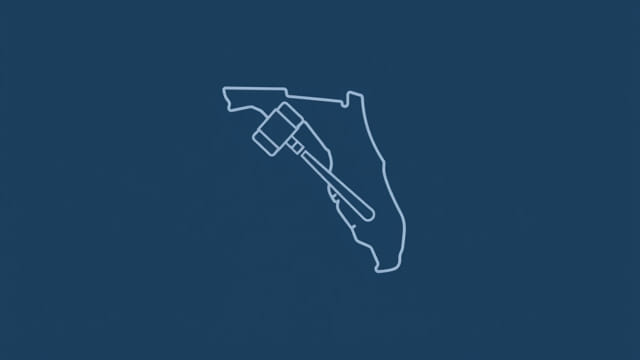Violation Of Pretrial Release Florida
Pretrial release is an important aspect of the criminal justice system in Florida, designed to ensure that defendants can maintain their freedom while awaiting trial, under certain conditions set by the court. However, when an individual violates the terms of their pretrial release, it can have serious legal consequences that impact their case and personal freedom. Understanding what constitutes a violation of pretrial release in Florida, the potential penalties, and how the system handles such violations is essential for defendants, attorneys, and those interested in the state’s legal process.
Understanding Pretrial Release in Florida
Pretrial release allows a defendant to be released from custody while awaiting court proceedings. This system balances the presumption of innocence with the need to ensure that the defendant returns for trial and does not pose a danger to the community. In Florida, pretrial release can take several forms, including bail, supervised release, or release on one’s own recognizance (ROR).
The conditions of pretrial release are tailored to the individual case and may include requirements such as regular check-ins with a pretrial officer, travel restrictions, prohibitions against contacting certain individuals, maintaining employment, or abstaining from drug and alcohol use. These conditions are legally binding, and violating them can lead to serious repercussions.
Common Conditions of Pretrial Release
- Mandatory check-ins with a pretrial services officer.
- Restrictions on travel, such as surrendering passports or limiting movement within certain areas.
- Abstaining from alcohol, drugs, or any illegal substances.
- Prohibition from contacting victims or witnesses related to the case.
- Maintaining employment or attending school.
- Electronic monitoring or curfews.
What Constitutes a Violation of Pretrial Release in Florida?
A violation occurs when a defendant fails to comply with one or more of the conditions set by the court during their pretrial release. The types of violations can vary widely, but common examples include:
- Failure to appear in court for scheduled hearings.
- Contacting prohibited individuals, such as victims or witnesses.
- Using drugs or alcohol in violation of court orders.
- Leaving the jurisdiction without permission.
- Failure to maintain communication with pretrial services officers.
- Committing new crimes while on release.
Even seemingly minor breaches can be considered violations and lead to consequences. The court takes violations seriously because they undermine the trust placed in the defendant and can jeopardize public safety and the integrity of the judicial process.
Legal Consequences of Violating Pretrial Release
When a violation is suspected or confirmed, the court may take several actions against the defendant. These consequences can range from increased restrictions to revocation of pretrial release and re-arrest.
- Revocation of Release: The court can revoke pretrial release, leading to the defendant being taken back into custody until the trial.
- Increased Bail Amount: Judges may increase bail as a condition for re-release.
- Additional Conditions: The court might impose stricter conditions such as electronic monitoring or more frequent check-ins.
- Criminal Charges: In some cases, violating pretrial release conditions can result in additional criminal charges, including contempt of court or bail jumping.
It is important for defendants and their attorneys to respond promptly and appropriately if accused of violating pretrial release to avoid further complications.
Process for Handling Violations of Pretrial Release
If the court or pretrial services believe a defendant has violated release conditions, a formal process typically begins. This process is designed to determine whether a violation has occurred and what penalties are appropriate.
Issuance of a Bench Warrant
One of the first steps is often the issuance of a bench warrant. This warrant authorizes law enforcement to arrest the defendant and bring them before the court to address the violation.
Violation Hearing
The defendant is entitled to a hearing where evidence of the alleged violation is presented. The defendant can contest the allegations, provide explanations, or demonstrate compliance.
Judicial Decision
Based on the hearing, the judge will decide whether a violation occurred and what sanctions are appropriate. The judge balances the severity of the violation, the defendant’s history, and public safety considerations.
How to Avoid Violating Pretrial Release Conditions
Defendants on pretrial release in Florida should take careful steps to comply fully with their conditions to avoid violations and the harsh consequences that follow. Some key tips include:
- Keep all court and pretrial appointments and communicate proactively if any issues arise.
- Follow all restrictions related to travel, substance use, and contact with certain individuals.
- Maintain employment or educational commitments as required.
- Inform pretrial services of any changes in contact information or circumstances.
- Seek legal advice promptly if unsure about any conditions or facing allegations of violations.
The Role of Legal Counsel
An experienced attorney plays a vital role in protecting a defendant’s rights throughout the pretrial release period. Counsel can advise on complying with conditions, assist in responding to alleged violations, and represent the defendant in violation hearings to seek the best possible outcome.
Violation of pretrial release conditions in Florida is a serious matter that can lead to revocation of freedom, additional charges, and complications in the underlying criminal case. The state’s legal system emphasizes compliance to protect the integrity of judicial proceedings and community safety. Defendants must understand their responsibilities clearly and seek legal support when needed to navigate this complex area effectively. With proper adherence and legal guidance, individuals can maintain their liberty during the pretrial phase and work towards a fair resolution of their cases.
